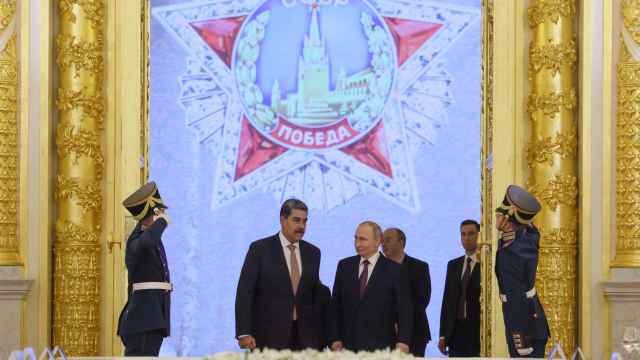At this very moment, nearly 1 billion people in the world are hungry. In Russia alone, more than 15 percent of the population subsists below the poverty line. The United Nations reports that many countries are on track to reach the Millennium Development Goal of halving their 1990 rates of hunger by 2015. But before the world gives itself a collective pat on the back, it is important to realize that this still leaves nearly one in eight people hungry.
Supporting the success of family farms and increasing farmers' incomes will significantly raise the overall standard of living in Russia.
Governments, research institutions, nonprofits, and farmers groups need to find solutions to feed the world, while improving farmer incomes, empowering youth and women, and protecting the environment. These solutions will not necessarily be found in silver bullet technologies or billion-dollar government food aid programs. The way forward is by finding ways to support the world's 500 million small family farmers with the resources they need to grow food for themselves, their communities, and the world.
The trajectory of large-scale agriculture has increasingly tended toward monocultures of cash crops — hectares and hectares of a single species of corn, soybean, or grain. By cultivating a wide variety of crops on a small plot of land, family farmers are more effective at providing their communities with healthy, nutrient-dense foods. Research from the UN Food and Agriculture Organization shows that smallholders' production of diverse crops has a direct, positive effect on a community's consumption of nutrient-dense foods. Furthermore, according to Food First, diversified plots produce 20 to 60 percent more food than those that grow only one crop.
In 2003, the Russian government signed the Private Garden Plot Act into law, entitling citizens to private plots of land for free. These plots range from 0.89 hectares to 2.75 hectares. In 1999, before this law was enacted, about 35 million families, or 70 percent of the population, were managing 8 million hectares of farmland and growing crops for themselves and for their communities. Collectively, they produced about 90 percent of potatoes, 77 percent of vegetables, 87 percent of fruit, 59 percent of meat, and 49 percent of milk. In 2004, food produced from these family plots accounted for 51 percent of agricultural output.
Industrial agricultural practices tend to be extremely resource-intensive and can damage the environment — 70 percent of global water use goes to farming, and soil is being eroded between 10 and 40 times faster than it is being replenished.
Smallholder farmers typically have intimate knowledge of their landscapes and local climates, and with adequate support and resources could help to transform agricultural practices toward more sustainable methods. Smallholder farmers are also more likely to rely less on scarce natural resources, and produce fewer greenhouse gas emissions than industrial farms.
In Russia, since much of the agricultural output is produced on small plots of land or dachas, there is little to no need for the use of heavy machinery that large, industrial farms use. Furthermore, the dacha movement has given way to an ecovillage movement — a movement that has encourages many families to create environmentally friendly and socially just agricultural settlements in which families live on and maintain about one hectare of land. Both the dacha and ecovillage movements have, according to a 2005 report presented at a University of Missouri conference, conserved biodiversity, decreased pressure on lands under commercial agriculture and preserved the genes of heirloom vegetables.
Rural areas, where most family farmers live, suffer from higher rates of poverty than urban ones. In Russia, 42 percent of the population living under the poverty line resides in rural areas.
Supporting the success of family farms — and increasing the incomes of family farmers — will significantly raise the overall standard of living in Russia. Research from Oxfam shows that investing in small farmers also creates a "multiplier" effect that extends beyond the farming — farmers spend a big share of their income in other sectors, including construction, infrastructure and manufacturing. As a result of the proliferation of household plots in rural areas, nominal incomes tripled between 1997 and 1999.
Small family farms carry the potential to feed the hungry, stimulate economies, and protect the environment. With these sorts of impressive returns, donors, nonprofits and governments need to invest in programs and infrastructure that support smallholder farmers. When feeding the world is what is at stake, there is no time to wait.
Danielle Nierenberg is president and co-founder of Food Tank: The Food Think Tank.
A Message from The Moscow Times:
Dear readers,
We are facing unprecedented challenges. Russia's Prosecutor General's Office has designated The Moscow Times as an "undesirable" organization, criminalizing our work and putting our staff at risk of prosecution. This follows our earlier unjust labeling as a "foreign agent."
These actions are direct attempts to silence independent journalism in Russia. The authorities claim our work "discredits the decisions of the Russian leadership." We see things differently: we strive to provide accurate, unbiased reporting on Russia.
We, the journalists of The Moscow Times, refuse to be silenced. But to continue our work, we need your help.
Your support, no matter how small, makes a world of difference. If you can, please support us monthly starting from just $2. It's quick to set up, and every contribution makes a significant impact.
By supporting The Moscow Times, you're defending open, independent journalism in the face of repression. Thank you for standing with us.
Remind me later.





